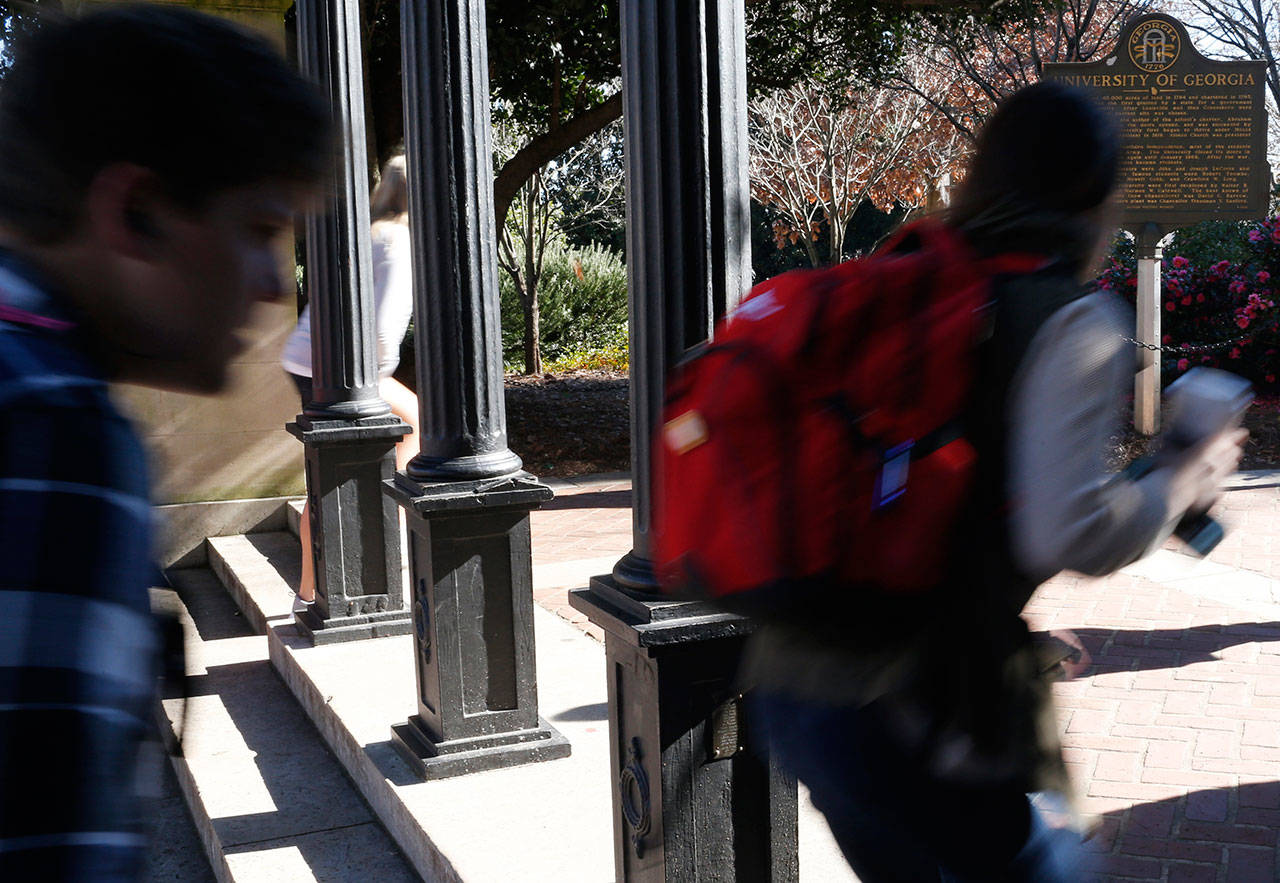By Ryan Lane / Associated Press
Forty percent of students who enroll in a four-year college don’t graduate within six years, according to the National Center for Education Statistics.
These students miss the benefits of a degree, but they might still pay dearly for their education: According to the office of Federal Student Aid, students who don’t complete college are three times more likely to have loans default than those who earn degrees.
To avoid this negative outcome and stay on track, colleges and researchers say to watch for these eight warning signs that can derail your education.
1. Not accepting help
Some colleges offer programs that spot students who need help. Georgia State University monitors 800 factors to identify at-risk students.
“We brand our system ‘GPS Advising,’ ” says Timothy Renick, the university’s senior vice president for student success. “Students are notified the moment that they make a wrong turn, and we can advise them about what they need to do to get back on path again.”
But it’s up to students to take advantage of assistance, at Georgia State and elsewhere. Don’t be embarrassed to use tutoring services, writing centers and other on-campus resources; they’re there to help you.
2. Taking too few credits
The Community College Research Center found that students at four-year colleges who take 15 credits their first semester are 11 percent more likely to earn a degree than those who take 12 credits. That’s partly due to basic math.
Many colleges consider 12 credits a full course load. But taking 12 credits each semester will leave you 24 credits shy of graduating after four years. To help you graduate on time, take at least 15 credits each semester or catch up with summer classes.
3. Choosing unnecessary courses
The 15 credits you take to stay on track shouldn’t be for just any courses. You want classes that count toward your major, says Bruce Vandal, senior vice president of the national nonprofit Complete College America.
“The more credits you take in your major the first year, the better off you are,” Vandal says. He recommends nine as a goal.
Balance the types of classes, too. Renick says Georgia State University identified “toxic combinations” of courses. For example, they found students struggle when taking calculus and physics in the same semester.
4. Struggling in your major
Pay attention to your grades in courses related to your major. They predict your chances for success.
“If you barely pass that first course, talk to a faculty member or adviser about how you can strengthen your skills before attempting upper-level and more difficult coursework in the field,” Renick says.
5. Being placed in remedial classes
Remedial classes are supposed to prepare students for college-level work. But they can make students feel like they don’t belong in college.
If you need remedial classes, you’re not alone. Approximately 1 in 4 freshmen end up in remedial classes, according to the national think tank Education Reform Now.
If you feel comfortable taking traditional courses, Vandal says to advocate for yourself. Tell your adviser you deserve to take regular courses and be responsible for getting the support you need.
6. Running out of money
If you’re facing a financial shortfall, talk to the financial aid office about options like completion scholarships and emergency loans. For example, Georgia State University provides micro grants to help students complete their studies.
Make sure you complete the Free Application for Federal Student Aid, or FAFSA, as well. The FAFSA makes you eligible for government grants, loans and other financial aid. Only 60.9 percent of high school seniors submitted a FAFSA in 2018, according to the National College Access Network.
7. Skipping class
Students who don’t attend class struggle academically. “This view is not just what faculty members claim to get you to show up,” Renick says. “The data support the claim.”
If you’re not putting in the necessary effort, ask yourself why. Regularly skipping class is likely symptomatic of a bigger issue. Figure out the root problem and address it before your grades suffer too much.
8. Dealing with adversity
Unforeseen life events, such as illness or the death of a loved one, can force students to drop out. Long-term issues involving food insecurity and housing can prove overwhelming as well.
Before withdrawing, see what emergency services your school offers , like grief counseling, food vouchers or short-term housing.
“There is likely somebody on that campus who can help you navigate (your) challenges,” Vandal says. “It’s not something you have to bear alone.”
Help
Finding emergency money, food and housing: http://bit.ly/nerdwallet-college-emergency-money-food-housing
Talk to us
> Give us your news tips.
> Send us a letter to the editor.
> More Herald contact information.

























